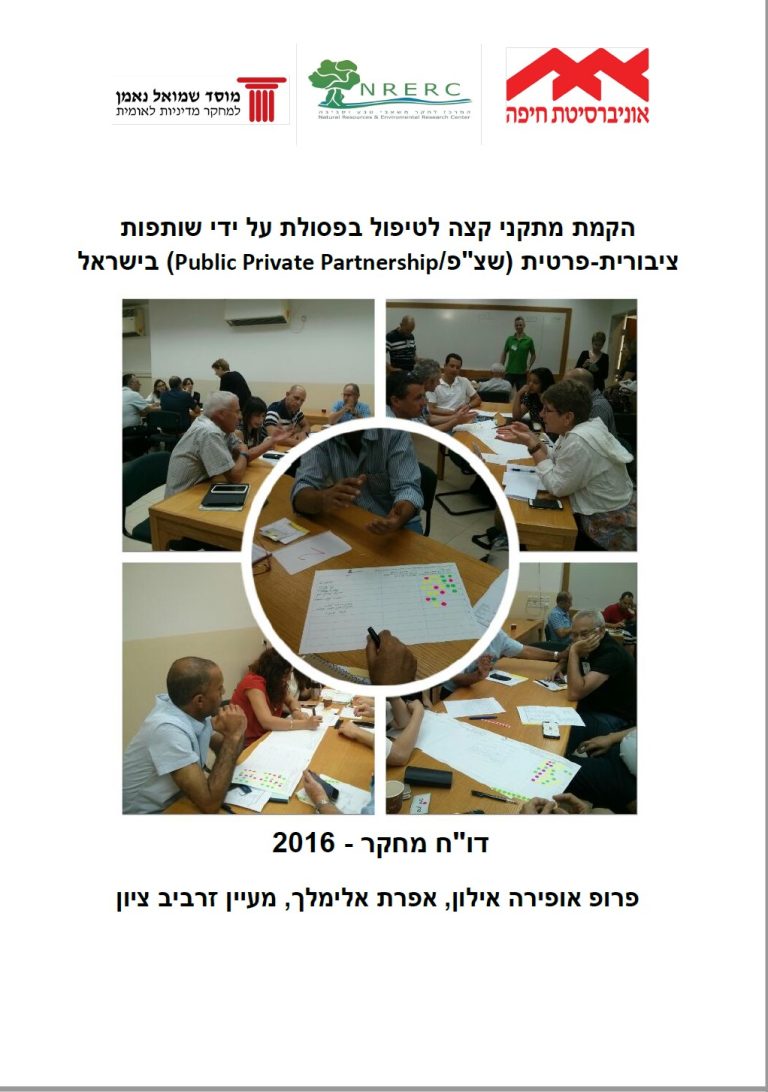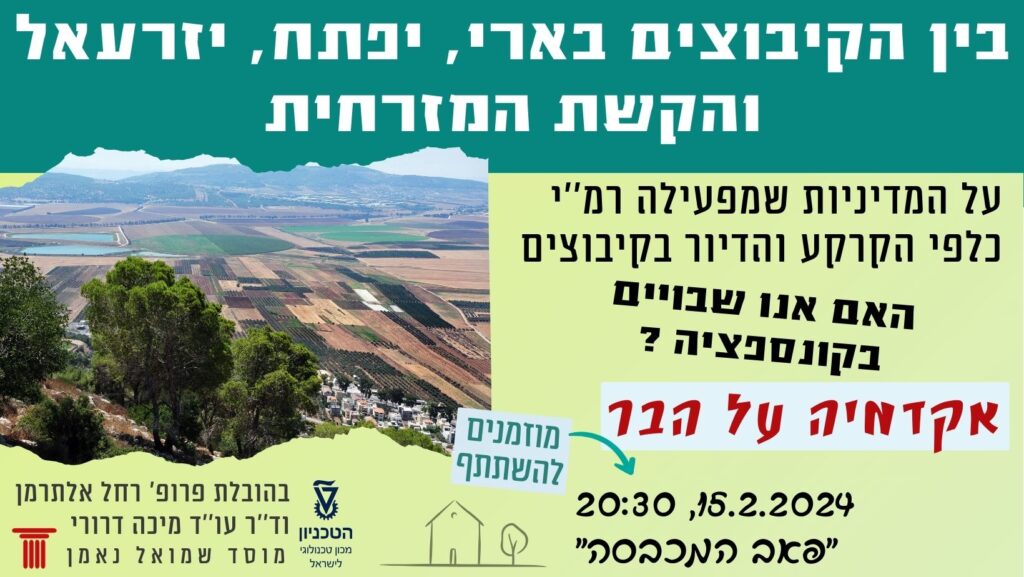This study was conducted as part of research funded by Mifal Hapais (the Israeli Lottery) and the Center for Local Authorities. The lack of compatibility between the waste management policy in Israel and the reality in the field raises the following question: What are the factors that hinder the establishment of end-treatment plants in Israel? In particular, is the establishment of end-treatment facilities for waste treatment in Public-Private partnership (PPP) capable of contributing to remove the barriers and realizing the policy?
To answer these questions, an extensive review of case studies from around the world was conducted, emphasizing vital indices for the success of PPP projects. In the second stage, an experts workshop was held with the participation of about 30 specialists in waste treatment from the public sector (government and local authorities), private sector consultants, operators of transfer stations and waste treatment facilities, and entrepreneurs in the area of waste treatment facilities. The workshop was conducted in the form of a Delphi Survey, where the experts were asked to address leading questions posed by the researchers, while working and discussing in groups. Group discussions focused on the identification and mapping of the main barriers to the establishment of waste treatment facilities in Israel and the development of possible solutions.
The experts’ workshop found 4 main barriers to the advancement and establishment of waste treatment facilities in Israel: regulatory uncertainty, economic uncertainty, the structure of the tender, and the NIMBY (Not in My Back Yard) phenomenon. One of the main conclusions of the study is that in the field of waste treatment, the public body is the local authority or the town association, not the government. The government’s role in the market is to create a supportive regulatory environment, while defining the ‘drainage areas’ for the waste.












